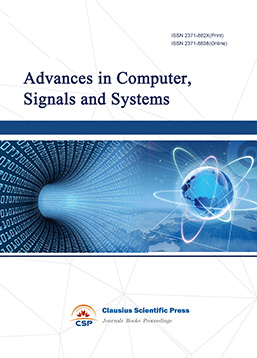Empirical Study on AI Empowering Urban Home-Based Elderly Care
DOI: 10.23977/jaip.2025.080307 | Downloads: 7 | Views: 195
Author(s)
Yiwei Zhang 1
Affiliation(s)
1 School of Statistics, Renmin Universtiy of China, Beijing, China
Corresponding Author
Yiwei ZhangABSTRACT
The rapid development of Artificial Intelligence (AI) is profoundly transforming lifestyles worldwide. With the accelerated aging of China population, challenges in elderly care services have become increasingly prominent, underscoring the urgent need for effective technology-enabled solutions. In this context, investigating how AI can effectively enhance home-based elderly care services holds substantial theoretical and practical significance. This study develops a research model of AI-enabled home-based elderly care grounded in Iceberg Theory and Technology Cognition Theory. Drawing on a survey of 300 elderly individuals and their adult children in Shenzhen China. the research thoroughly examines the intrinsic relationship between elderly care needs and AI technology applications. The findings offer both a theoretical foundation and practical guidance for leveraging AI to optimize urban home-based elderly care services, ultimately contributing to the improvement of elderly individuals' quality of life.
KEYWORDS
Artificial Intelligence, Home Based Elderly Care, Technology Cognition Theory, Psychological NeedsCITE THIS PAPER
Yiwei Zhang, Empirical Study on AI Empowering Urban Home-Based Elderly Care. Journal of Artificial Intelligence Practice (2025) Vol. 8: 44-53. DOI: http://dx.doi.org/10.23977/jaip.2025.080307.
REFERENCES
[1]The Central People's Government of the People's Republic of China, 2022. Notice on the Issuance of the '14th Five-Year Plan' for Healthy Aging. Available at: https://www.gov. cn/zhengce/zhengceku/2022-03/01/content_5676342. htm [Accessed 24 May 2025].
[2] Ren, Z., et al., 2024. China Aging Research Report 2024. Available at: https: //www. caoss. org. cn/UploadFile/pic/20229281791192316. pdf [Accessed 24 May 2025].
[3] SFC Group. White Paper on the Development Trend of Home-Based Elderly Care in China Available at: https://daneenon.com/wp-content/uploads/2022/09/%E3%80%8A%E4%B8%AD%E5%9B%BD%E5%B1%85%E5%AE%B6%E5%85%BB%E8%80%81%
E5%8F%91%E5%B1%95%E8%B6%8B%E5%8A%BF%E7%99%BD%E7%9A%AE%E4%B9%A6%E3%80%8B.pdf [Accessed 24 May 2025].
[4] Russell, S.J. and Norvig, P., 2020. Artificial Intelligence: A Modern Approach. 4th ed. Pearson.
[5] Zhu, Y., Li, Z. and Jiao, G., 2023. National Smart Elderly Care Industry Development Report . Available at: https://www.pishu.com.cn/skwx_ps/ps/literature?SiteID=14&ID=15824763 [Accessed 24 May 2025].
[6] Tencent and Silver Tech, 2022. Invisible Guardians: Silver Tech Blue Book 2022 [online]. Available at: https://13115299.s21i.faiusr.com/61/1/ABUIABA9GAAg1JjvoAYo1PTz2gI.pdf [Accessed 24 May 2025].
[7] Tenenbaum, G. and Land, W.M., 2009. Mental Representations as an Underlying Mechanism for Human Performance. Progress in Brain Research, 174, pp.251–252.
[8] Wanqing Health Technology, 2023. 2023 Research Report of Wanqing Health Technology [online]. Available at: https://www.sgpjbg.com/baogao/614631.html [Accessed 24 May 2025].
[9] Satir, V., Banmen, J., Gerber, J. and Gomori, M., 1991. The Satir Model: Family Therapy and Beyond. Palo Alto, CA: Science and Behavior Books.
| Downloads: | 15032 |
|---|---|
| Visits: | 475541 |
Sponsors, Associates, and Links
-
Power Systems Computation

-
Internet of Things (IoT) and Engineering Applications

-
Computing, Performance and Communication Systems

-
Advances in Computer, Signals and Systems

-
Journal of Network Computing and Applications

-
Journal of Web Systems and Applications

-
Journal of Electrotechnology, Electrical Engineering and Management

-
Journal of Wireless Sensors and Sensor Networks

-
Journal of Image Processing Theory and Applications

-
Mobile Computing and Networking

-
Vehicle Power and Propulsion

-
Frontiers in Computer Vision and Pattern Recognition

-
Knowledge Discovery and Data Mining Letters

-
Big Data Analysis and Cloud Computing

-
Electrical Insulation and Dielectrics

-
Crypto and Information Security

-
Journal of Neural Information Processing

-
Collaborative and Social Computing

-
International Journal of Network and Communication Technology

-
File and Storage Technologies

-
Frontiers in Genetic and Evolutionary Computation

-
Optical Network Design and Modeling

-
Journal of Virtual Reality and Artificial Intelligence

-
Natural Language Processing and Speech Recognition

-
Journal of High-Voltage

-
Programming Languages and Operating Systems

-
Visual Communications and Image Processing

-
Journal of Systems Analysis and Integration

-
Knowledge Representation and Automated Reasoning

-
Review of Information Display Techniques

-
Data and Knowledge Engineering

-
Journal of Database Systems

-
Journal of Cluster and Grid Computing

-
Cloud and Service-Oriented Computing

-
Journal of Networking, Architecture and Storage

-
Journal of Software Engineering and Metrics

-
Visualization Techniques

-
Journal of Parallel and Distributed Processing

-
Journal of Modeling, Analysis and Simulation

-
Journal of Privacy, Trust and Security

-
Journal of Cognitive Informatics and Cognitive Computing

-
Lecture Notes on Wireless Networks and Communications

-
International Journal of Computer and Communications Security

-
Journal of Multimedia Techniques

-
Automation and Machine Learning

-
Computational Linguistics Letters

-
Journal of Computer Architecture and Design

-
Journal of Ubiquitous and Future Networks


 Download as PDF
Download as PDF